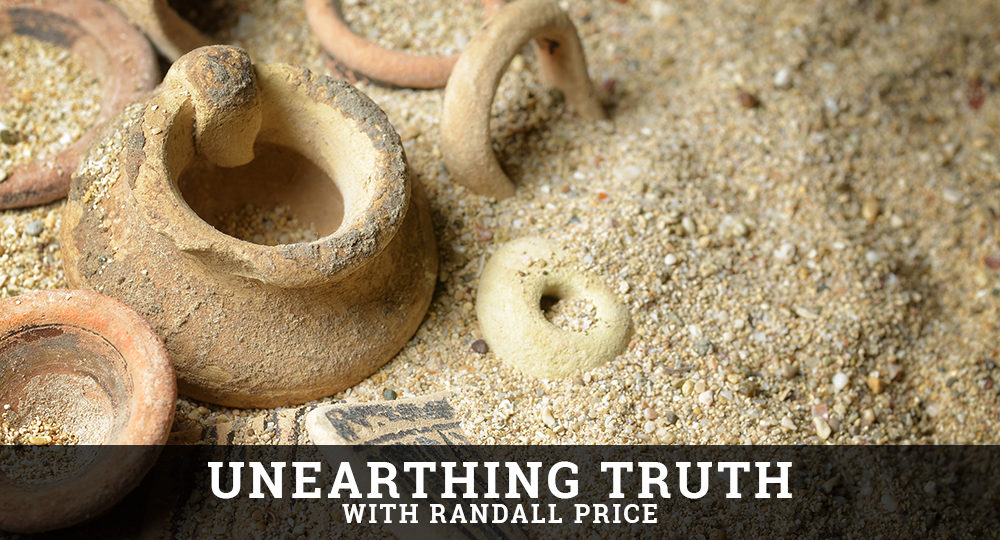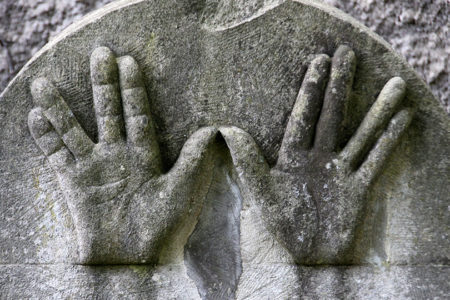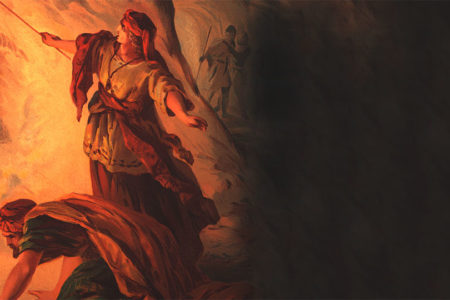Why Would God Harden a Heart?
Exodus 4:21 records a statement God made to Moses: “When you go back to Egypt, see that you do all those wonders before Pharaoh which I have put in your hand. But I will harden his heart, so that he will not let the people go.” Why would God harden Pharaoh’s heart even before Pharaoh heard Moses’ request to let the Israelites go?
While it is true Pharaoh “hardened his [own] heart” (8:15, 32), we must understand God’s purpose in hardening his heart from the outset. The Bible does not provide a direct answer, but the archaeological discovery of an ancient Egyptian funerary papyrus known as the Book of the Dead gives us an indirect answer in the account of the Ten Plagues (called “all those wonders” in Exodus 4:21).
The Book of the Dead reveals the theology of the ancient Egyptian death cult and helps explain how the God of Israel was demonstrating His power against the false gods of Egypt by hardening Pharaoh’s heart.
Egyptians considered Pharaoh the physical incarnation of the three most important gods of Egypt.1 They viewed his word as that of a god who controlled history and the natural elements; it could not be reversed or overruled.2
The Bible does not name the Pharaoh in the Exodus account, perhaps so that the God of Israel could match His power directly against the Egyptian gods via the plagues that upset the Egyptians’ theological dependence on their pantheon of deities.
The Egyptian Book of the Dead explains what the Egyptians believed happened to the souls of pharaohs and other high-ranked Egyptians after their deaths and subsequent embalming in pyramids. They believed that after death, the deceased’s soul faced a trial in the afterlife, called the “Weighing of the Heart,” in a hall of judgment.
There the god of the underworld, Osiris, determined the deceased’s guilt or innocence, resulting in either salvation or destruction; and Anubis, an Egyptian god of the afterlife, was in charge of the test. A great scale held the deceased’s heart on one side and a feather on the other side, the hieroglyphic symbol of Maat, the goddess of truth.
Egyptians viewed the heart as the seat of one’s intellect and emotion and as central to rebirth in the afterlife. Therefore, the deceased’s heart, not the individual himself, was asked to prove his innocence through a number of negative confessions. If the heart revealed it was weighed down with guilt, it would tip the scales against the deceased.
Given this understanding, pharaohs tried to prevent their hearts from contradicting their negative confessions by arranging for heart scarabs to be placed within their chest cavities during embalmment. These scarabs contained an incantation ordering the heart not to witness against the deceased’s testimony before Osiris.3
The Egyptians believed that the stony character of the scarab was transferred to the fleshly heart, making it “hard” and therefore unable to speak,4 resulting in the pharaoh’s salvation, since he was decreed sinless through silence. The Egyptians were so sure this hardening would work that a negative outcome of the trial is never depicted.
This context can help us understand how God’s hardening of Pharaoh’s heart reversed the Egyptians’ theological hope, since Pharaoh’s inability to stop the divinely ordered plagues resulted not only in his but also in Egypt’s destruction. Thus the discovery of ancient Egyptian beliefs as found in the Book of the Dead provides yet another example of how archaeology aids our interpretation of difficult theological texts.
ENDNOTES
-
- This relationship was especially connected with pharaohs Thutmose III and his son Amenhotep II, whom many scholars believe were the Exodus pharaohs. Egyptian theology, enhanced by the pharaohs’ military accomplishments, gave them the status of “the sovereign gods of heaven and earth.”
- See H. Frankfort, Kingship and the Gods (Chicago, IL: University of Chicago Press, 1948), 5; idem, Ancient Egyptian Religion (New York, NY: Columbia University Press, 1948), 30; and I. Engnell, Studies in Divine Kingship in the Ancient Near East (Oxford: Basil Blackwell, 1967), 4–15.
- See Spell 30B in the Book of the Coming Forth by Day. For the full documentation of this ritual, see A. Hermann, “Das steinhartes Herz,” Jahrbuch für Antike und Christentum (Munster: Aschendorffsche Verlagsbuchandlung, 1961), 4:102–3.
- For the various incantations, see J. Zandee, Death as an Enemy (Leiden: Brill, 1960), 259–62.







